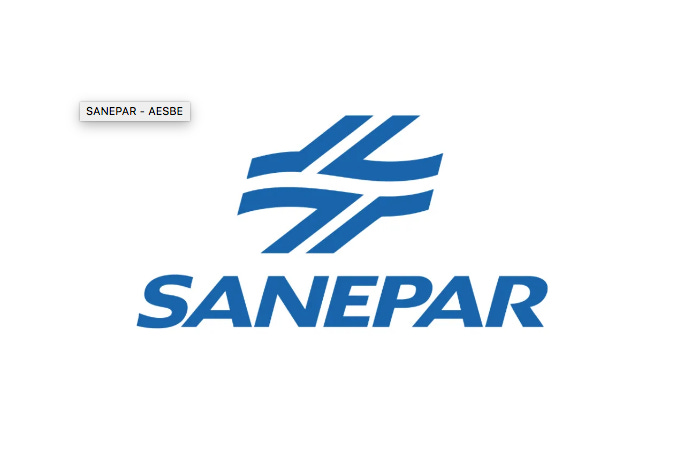Today we are going to talk about a company in the Water & Sewage sector: Companhia de Saneamento do Paraná - Sanepar S.A. (B3: SAPR4, SAPR3, SAPR11).
Who will I partner with?
The company has common shares (SAPR3), preferred shares (SAPR4) and Units (SAPR11) listed on B3 (Brazilian Stock Exchange)
If you don't have an account in Brazil, you can buy shares in B3 using Interactive Brokers.
As usual, Units are more liquid than preferred shares, which in turn are more liquid than common shares.
Preferred shares pay a dividend 10% higher than common shares, according to the company's Bylaws.
Each Unit comprises 1 common share plus 4 preferred shares.
The State of Paraná owns 60% of the common shares, thus controlling the company.
The remaining 40% of common shares, as well as 100% of preferred shares, are dispersed in the market.
There are no relevant minority shareholders.
What does Sanepar do:
Founded in 1963 and listed on the Stock Exchange since 2000, Sanepar holds the concession of public basic sanitation services in cities in the State of Paraná.
It provides water and sewage services to 345 cities in Paraná, Porto União located in Santa Catarina, in addition to 303 smaller locations.
Currently, in a sharp process of growth with regard to the collection and treatment of sewage and also operates sanitary landfills, serving 7 municipalities.
Among the people from Paraná linked to the company, 100% receive treated water and, in addition, Sanepar manages to treat 100% of the collected sewage, numbers that stand out significantly when compared to national numbers.
Looking at the company's finances, it doesn't even look like it operates in Brazil.
Revenue, profit, and shareholder's equity grow constantly, practically in a straight line, like a clockwork. ROE of 15%, the highest in the industry.
But, behind this bucolic tranquility, there are some points of attention that I will reveal below…
My Point of View:
Without a doubt, among the 3 water and sewage companies listed on B3 (Sabesp, Copasa and Sanepar), Sanepar is the best in financial terms.
Looking at long terms, it is the company with the highest earnings growth and the highest ROE (return on equity).
In addition, it is the one that paid the most dividends on invested capital.
It is so resilient that, even at the time of Dilma's impeachment, it presented an excellent financial performance, as if nothing was happening in the country.
During the pandemic, it also had a very healthy performance.
It pays dividends only once a year, which is a little uncomfortable for the most daring, but they are growing and constant dividends.
As it is state-owned, it trades on the stock exchange with a structural discount, which makes it have an interesting dividend yield.
Until then everything is beautiful.
The issue is the controller.
The State of Paraná is not the only controller of Sanepar. He also runs Agepar, which is Paraná's regulatory agency.
Unlike the electricity sector, where the regulator is Federal, in the water and sewage sector, the regulator is always State.
This creates a beautiful conflict of interest.
As?
Simple…
If we are close to a state election year, the governor may not pass on the increase in inflation in water and sewage tariffs.
Sure… a water and sewer hike is unpopular, even if it's due to inflation.
This has happened several times in the past.
The company says it will pass on the increase in the future and sometimes it ends up being that way.
In other words, the government uses the company as a political instrument.
It sends a chill down your spine and you want to run away, doesn't it?
I know it does.
But when you look at the numbers, even with these abuses, the company is so good that its shares are still worth buying, at the right price, obviously.
It is very common to see fund managers complaining about this issue of company readjustments.
I'm more tolerant, because I pay more attention to the numbers themselves than to the screaming.
In addition, there is a tangle related to the Sanitation Regulatory Framework. Maybe that's why Sanepar is doing so many PPP (public-private partnerships) lately. There is a goal of universalization of water and sewage and it does not have the financial capacity to meet this demand alone.
I also saw, some time ago, some municipalities trying to leave the Sanepar concession. But I confess that this does not worry me much, because it would result in heavy fines due to all the investment made in serving that municipality.
One good thing: there is some chance the company will be privatized.
The current Governor, Ratinho Jr., has already fired his privatizing ray at Copel (the state-owned electricity company in Paraná).
Although he has recently said that he does not intend to privatize Sanepar, Sabesp is in the process of being privatized.
And Governor Zema is dying to privatize Copasa (a state-owned sanitation company in Minas Gerais).
If the price is attractive, I have no doubt that Sanepar will be privatized.
This would reprice the company, potentially causing the shares to double or even triple in price.
But this has to be a bonus, not the basis of the investment thesis.
Is it cheap?
After all, is it to buy this stock or not?
What is the price to buy and sell SAPR4 after all?
I'll show you all the rationale, in detail.
Let's go.




